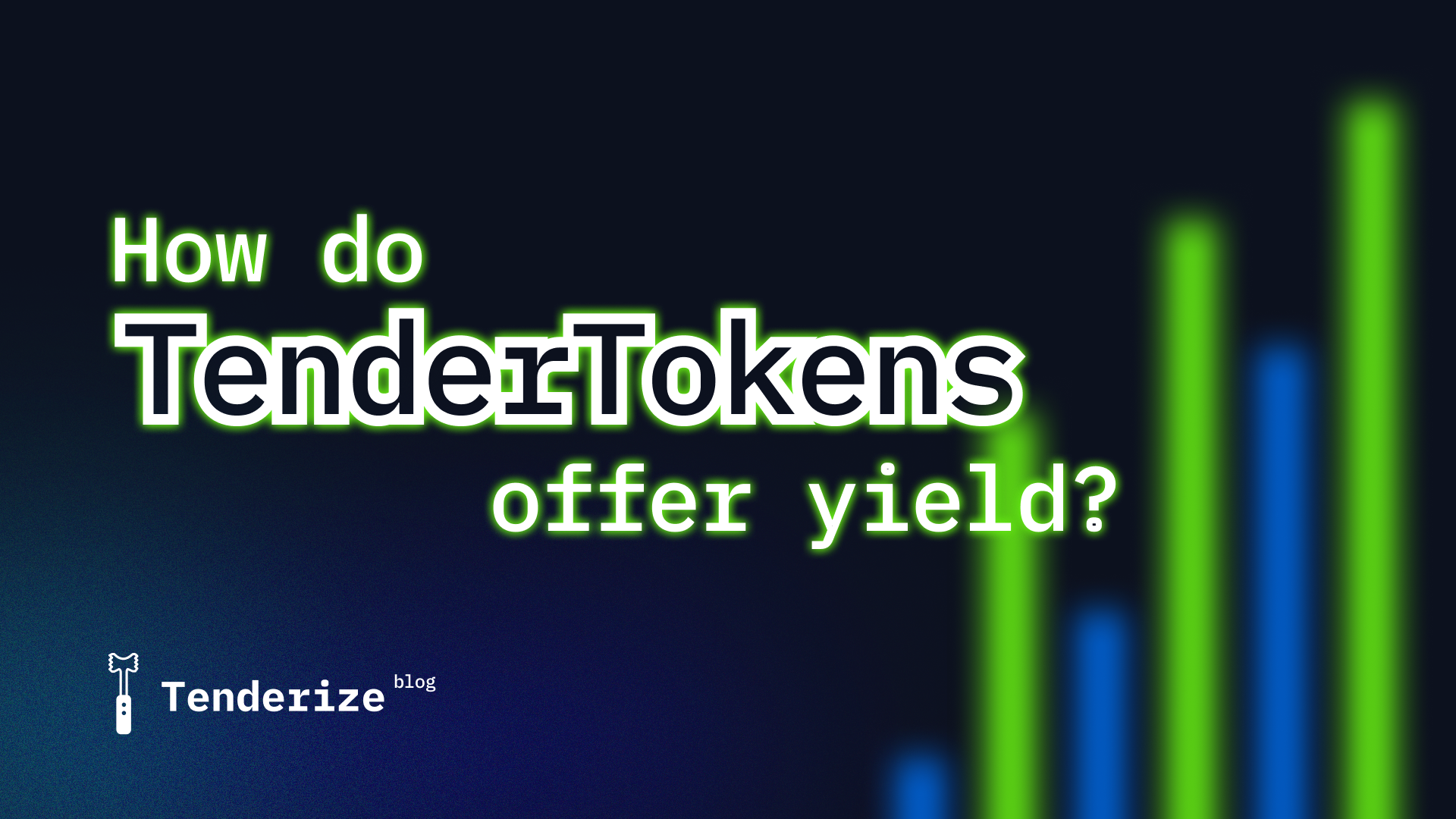How do TenderTokens offer yield?
Discover how Tenderize protocol generates staking rewards by optimally allocating funds to the best performing nodes while offering flexibility, diversity, and a flow of rewards for Web 3 stakeholders.

Web 3 protocols face capital efficiency, diversification, and complexity issues for protocols and agents (e.g., nodes) to run flexible and profitable operations with their tokens. Web 3 offers a new way to generate tokens based on sustainable growth, but what to do with the available capital?
Discover how Tenderize protocol generates staking rewards by optimally allocating funds to the best performing nodes while offering flexibility, diversity, and a flow of rewards for Web 3 stakeholders.
What are the options for capital coming from Web 3 infrastructure?
Lack of flexibility, capital efficiency, and diversification.
Web 3 offers a novel way of participating in the open economy, with the user becoming the central actor, an opposite approach to Web 2, which has dominated until now.
With Web 3, participants effectively gain tokens from their work instead of being passive agents or only users of a product. If you earn tokens from Web 3 infrastructure protocols, what can you do with them?
Staking could be a passive investment opportunity. However, traditional staking has lock-up periods, resulting in a lack of flexibility in your investment, even if rewards are attractive. An example is the lack of control you have when the original staked asset is on a declining price trend.
Other strategies could include allocating funds to useful nodes in a network to generate more returns, which would require the time and knowledge to find the best alternatives available or outsource that work.
What about utilizing your original tokens in other investment vehicles in DeFi? With staked tokens, you no longer have the availability of funds to pursue other opportunities, leading to no diversification.
The lack of simplicity for stakeholders leads to many of the Web 3 tokenomics being underutilized, leaving “money on the table.”
Liquid staking: full flexibility and a myriad of use-cases
Tenderize is introducing liquid staking for Web 3 players, offering full flexibility and more use-cases in a DeFi environment.
With Tenderize, Web 3 protocols and individuals can stake their tokens into the protocol and generate sustainable rewards as derivatives called TenderTokens.
Investors can lock their original Web 3 tokens, and the protocol will convert them, on a 1:1 basis, to TenderTokens, which you can convert back at any time.
TenderTokens are ERC-20 derivatives based on the originally locked tokens. While you stake on Tenderize, you’re gaining rewards as TenderTokens, but you still have your original tokens available for other use-cases.
Tenderize offers a new way for capital allocation and diversification by introducing a 0-day lock-up period for staked assets and a complete investment flow, starting with staking to liquidity pooling and farming.
Under the Tenderize ecosystem, you can earn automatically compounded staking rewards, receive liquidity pool tokens (e.g., tLPT-LPT-SWAP), and farm SWAP tokens for extra TenderToken rewards.
How do TenderTokens enable yield?
The architecture of the Tenderize protocol is designed for each Web 3 asset (e.g., Livepeer, Polygon) to have its staking pool and TenderToken. When you deposit the original tokens, you’ll receive the newly minted TenderTokens.
Tender Governance. Source: Tenderize Whitepaper
The Tenderize protocol will allocate funds towards high-performing nodes under each network, solving the bottleneck of Web 3 players searching for the best available node to invest their funds. Tenderize allocates funds to the best option in an opinionated, trustless, and permissionless way.
This way, TenderTokens can generate yield by being tied to the performance of each node and bound to each node operator.
Other liquid staking platforms only aggregate all the deposited funds, issue a derivative, and allocate funds to various nodes in a semi-custodial manner, more prone to human error. Tenderize does not work as a traditional aggregator, with the setbacks of manual intervention, but as a full permissionless protocol.
Instead, the Web 3 principles of freedom, automation, and ownership are designed into the Tenderize protocol to offer a full solution for instant liquid staking and collateralized locked-up assets.
Join Tenderize in boosting the future of capital efficiency under a Web 3 standard. Check the steps and sign-up today!
